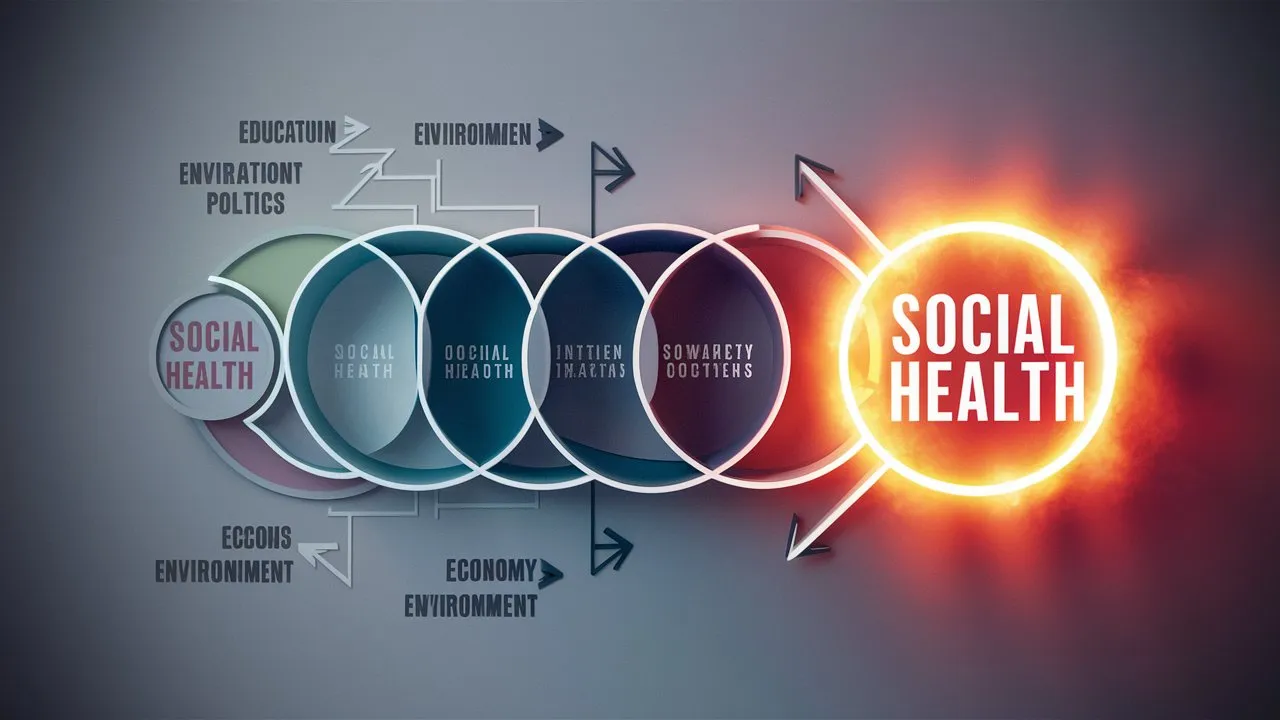Table of Contents
Numerous factors contribute to the well-being of individuals and communities in social health. One of the most critical yet often overlooked elements is the Intervening Cause in Social Health. This concept refers to hidden factors that can alter the expected outcomes in health and social policies. Understanding these intervening causes is essential for anyone involved in public health, social work, or community planning. This article will explore intervening causes’ impact on social health, uncovering how they shape outcomes and influence overall well-being.
What Is an Intervening Cause in Social Health?

Defining Intervening Causes
An Intervening Cause in Social Health is an unexpected factor that disrupts the direct relationship between a cause and its effect within social health contexts. These causes can significantly alter the outcomes of health initiatives, policies, or interventions, often leading to results that differ from what was initially anticipated.
Examples of Intervening Causes
Intervening causes can vary widely depending on the context. For example:
- Economic Shifts: A sudden change in the economy, such as a recession, can act as an intervening cause, affecting the success of health programs aimed at low-income communities.
- Cultural Factors: Cultural beliefs and practices can intervene in the effectiveness of health campaigns, particularly those related to diet, exercise, or mental health.
- Environmental Changes: Natural disasters or climate change can disrupt health services and alter the outcomes of health policies.
The Importance of Identifying Intervening Causes
Why Intervening Causes Matter
Recognizing and understanding the Intervening Cause in Social Health is crucial because these factors can significantly impact the success or failure of health initiatives. Ignoring them can lead to ineffective policies and wasted resources, but addressing them can enhance the effectiveness of social health programs.
Impact on Policy Making
Intervening causes play a vital role in shaping public health policies. Policymakers must know these hidden factors when designing and implementing health programs. By anticipating potential intervening causes, they can create more resilient policies better equipped to handle unexpected challenges. The impact of an intervening cause in social health can either mitigate or exacerbate public health challenges.
Enhancing Community Health
Understanding intervening causes can lead to more effective health interventions for communities. By addressing these hidden factors, community leaders and health workers can develop strategies more likely to succeed, leading to improved health outcomes and greater well-being.
Common Intervening Causes in Social Health
Economic Factors
Economic conditions are among the most significant intervening causes in social health. Changes in employment rates, income levels, and access to resources can dramatically alter the effectiveness of health programs.
Unemployment and Health Outcomes
Unemployment can intervene by increasing stress levels, reducing access to health care, and leading to poorer health outcomes. Programs to improve health must consider the economic environment to ensure their success.
Income Inequality
Income inequality is another major intervening cause. Communities with significant income disparities often experience health outcomes that differ vastly from those in more economically equal areas. Addressing income inequality is crucial for the success of health initiatives. Addressing the intervening cause in social health is essential for achieving long-term positive outcomes.
Cultural and Social Factors
Cultural beliefs and social norms can also intervene in social health. Depending on how well they align with the community’s values, these factors can either support or hinder the success of health programs.
Cultural Resistance to Health Programs
Certain health practices, including vaccinations or mental health care, may be opposed in some communities due to cultural beliefs. Understanding these cultural dynamics is essential for creating programs that resonate with the community and achieve desired outcomes. Identifying the intervening cause of social health issues is crucial for effective intervention strategies.
Social Networks and Health Behavior
Social networks can influence health behaviors in significant ways. For example, if a community places a high value on social gatherings involving unhealthy eating, this can be an intervening cause undermining efforts to promote healthy diets.
Addressing Intervening Causes in Social Health
Strategies for Mitigating the Impact of Intervening Causes
To effectively address the Intervening Cause in Social Health, developing strategies to mitigate or leverage these hidden factors is essential. Here are some approaches:
Community Engagement
Engaging with the community is essential for identifying potential intervening causes. By involving community members in the planning process, health workers can gain insights into the cultural, social, and economic factors that influence the success of health initiatives.
Flexibility in Policy Design
Policies and programs should be designed with flexibility in mind. This allows them to adapt to changing circumstances, such as economic shifts or cultural resistance, ensuring they remain effective even when intervening causes arise.
Continuous Monitoring and Evaluation
Regular monitoring and evaluation are critical for identifying and addressing intervening causes as they emerge. By tracking the progress of health initiatives and making adjustments as needed, policymakers and health workers can ensure that their programs stay on track. Get More Info about Health.
Understanding the Hidden Impact

Intervening Causes in Social Health plays a crucial role in shaping the outcomes of health initiatives and policies. By recognizing and addressing these hidden factors, communities, policymakers, and health workers can improve the effectiveness of their efforts, leading to better health outcomes and enhanced well-being.
Understanding the impact of intervening causes will remain essential to creating resilient and effective health programs as we continue exploring social health’s complexities.



